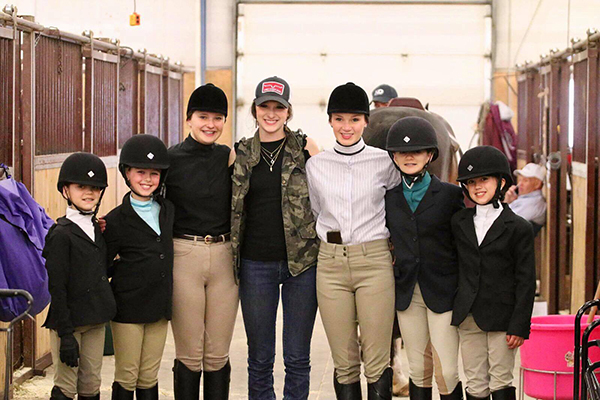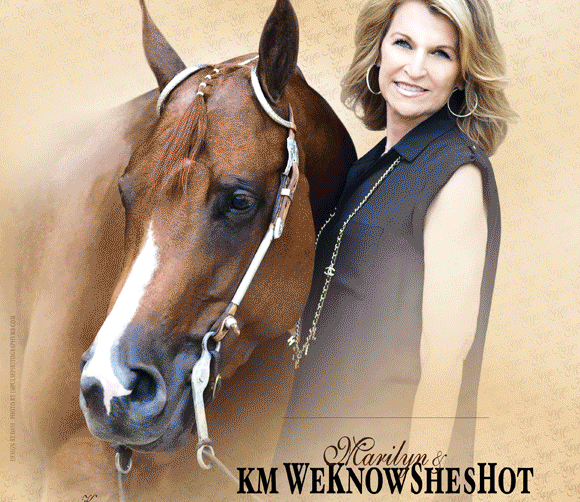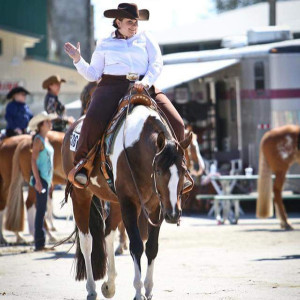EC Blog- Sportsmanship in the Horse Industry, a 4-Pronged Approach
We’re excited to introduce our newest EquineChronicle.com blogger, Kory Kumar! If you’d like to contribute a blog post about a topic of importance to the horse industry, email B.Bevis@EquineChronicle.com.
There is one major question on the minds of equestrian event organizers all over the country. This question has prompted social media postings, face-to-face meetings, association convention focus groups, and inquiries over the past several years. How do we increase participation?
As the first horse shows of the season are wrapping up, exhibitors, show committees, and other professionals are analyzing data and seeking feedback in an ongoing effort to improve the quality of shows and levels of exhibitor participation for the future. I commend these groups for looking forward and seeking feedback from the people who consume the very product they are creating. I’m also discouraged by how fast negativity and complacency can overtake good intentions.
Have you ever stopped to really think about the complexity of the equine industry, and, more specifically, how we are a culture of people who consume our own product? This question, and understanding of the equine community, is directly related to the question of how to improve participation at equine events.
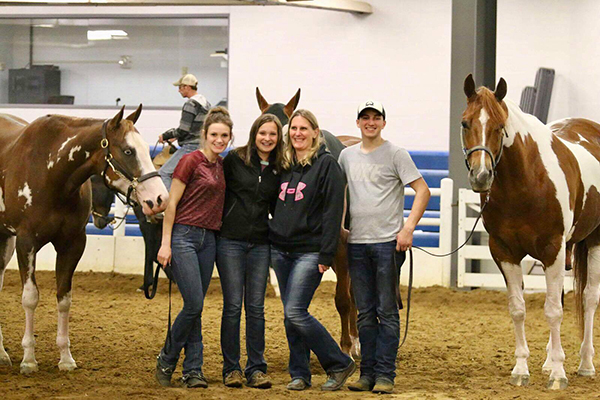 I am a research oriented person. I am a data nerd. I LOVE statistical analysis. You may not have known that about me, but it’s true. I geek out on charts, graphs, and numerical values. I find so much joy in determining statistical significance to prove conclusions. That being said, I decided to engage in a bit of personal research for two, very specific purposes. The first purpose was to look for a business plan example that would directly correlate to producing a product that was self-consuming and use that example within the groups I currently work with for our own growth. The second purpose was to look at longitudinal data related to horse show participation numbers and then correlate that to printed information about the clubs hosting the shows, as well as the shows themselves.
I am a research oriented person. I am a data nerd. I LOVE statistical analysis. You may not have known that about me, but it’s true. I geek out on charts, graphs, and numerical values. I find so much joy in determining statistical significance to prove conclusions. That being said, I decided to engage in a bit of personal research for two, very specific purposes. The first purpose was to look for a business plan example that would directly correlate to producing a product that was self-consuming and use that example within the groups I currently work with for our own growth. The second purpose was to look at longitudinal data related to horse show participation numbers and then correlate that to printed information about the clubs hosting the shows, as well as the shows themselves.
What I found was that individual prizes or High Point awards had little to do with an increase in exhibitor participation. Yes, people enjoy winning things; but, let’s be honest, if you took an inventory of your prize collection over the last several years of showing, could you pinpoint exactly what show the awards came from, unless it was printed on it? Maybe some of you can, but that really isn’t my point. Some shows give better prizes than others. It’s true. Some shows have a larger budget to work with. The prizes that people find the most appealing are things they can use either for themselves, or on their horse, but the prize itself doesn’t really matter, so long as there is a prize.
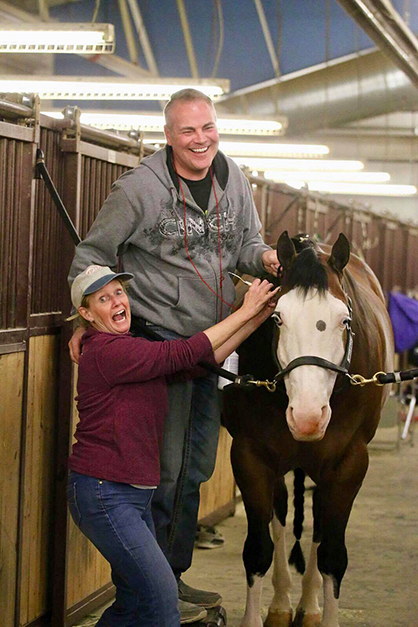 Something else I found is that the clubs who used social media platforms to highlight the positive things happening in their groups all year, and who stayed away from drama or negativity, had higher rates of exhibitor participation. Also, shows that were more highly promoted in a positive and fun way on the same social media platforms grew in exhibitor participation over a five-year span. What I have also discovered, by talking with exhibitors, is that the shows that have no outward reaching signs of drama or hostility are the events showing positive growth. More simply stated, when shows are fun, and exhibitors have fun, they are more likely to want to come back and show again.
Something else I found is that the clubs who used social media platforms to highlight the positive things happening in their groups all year, and who stayed away from drama or negativity, had higher rates of exhibitor participation. Also, shows that were more highly promoted in a positive and fun way on the same social media platforms grew in exhibitor participation over a five-year span. What I have also discovered, by talking with exhibitors, is that the shows that have no outward reaching signs of drama or hostility are the events showing positive growth. More simply stated, when shows are fun, and exhibitors have fun, they are more likely to want to come back and show again.
As I reflect upon this information, I keep thinking about how we, you and me, the exhibitors, judges, show staff, trainers, and breed associations are creating the product (horse shows), that we are also consuming, and how that simple fact means that we are the ambassadors to the industry. Putting it into perspective, this means that WE have a whole lot more responsibility on our shoulders than just to show up, pay our fees, and do our jobs. So, in a nutshell, the formula for building positive participation at equine events boils down to just a few simple things that really don’t cost groups a lot of money.
In my life as a public educator, it’s a common and researched practice to have a list of rules of five items or less. So, in my personal quest for information and understanding, I have identified four basic principles, or themes for successful equine events.
1. Promotion & Advertisement- The clubs, groups, and associations need to promote the good work they’re doing all year long, so that people are excited to be part of the larger picture. The shows need to be positively promoted, so that people want to come and participate. The accomplishments of exhibitors need to be promoted, so that people can share their pride in what they have done, which will cause other people to want to come and participate.
2. Mentorship. In order to experience sustained and lasting growth, we must mentor and invite new people into our midst. We must be kind, helpful, polite, and welcoming. These are essentially the skills we are ALL taught since Kindergarten in how to have positive social skills. (Can you tell I’m a teacher?). These things can easily be forgotten. When we’re consumed with our own things, even though you may not purposefully engage in cold or unapproachable behavior, it can be perceived by others in that way. Events would be best served to create social opportunities for everyone to mingle and socialize. This creates a more open and inviting experience and allows for new, shy, or even just veterans to cross the aisles and get to know one another.
3. Drama Free Environment. We also need to make sure our personal drama doesn’t create a negative environment and contribute to any visible negativity that may reflect poorly on the show. Since we’re all ambassadors for our sport and community, that means we all have an equal responsibility to ensure its growth and prosperity. If you have a problem with someone, handle it in a way that doesn’t create or share your drama with others. The location of where you work out your issues has the potential to have a very negative impact upon an event.
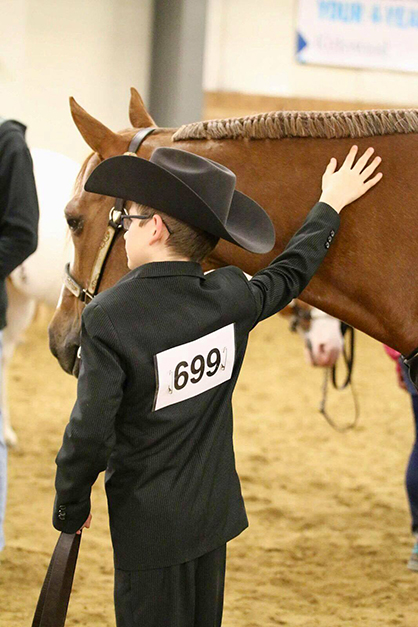 4. Positive Sportsmanship. This really just a second tier of #3, but it’s equally important. Each and every one of us has a responsibility to engage in and promote positive sportsmanship. We are examples to the outsiders and newcomers of the groups. I don’t mean to just go through the motions. We need to maintain our own personal horse show goals with our trainers and teams, but we still must encourage “outsiders” as they’re also working toward their goals. We ALL have different reasons for being at the shows, but those difference don’t have to divide us. You may be in competition with your peers, but your competition doesn’t have to mean negativity or rudeness. We each have different competitive drives and levels; however, your competition is in the arena with yourself. It’s not in the barns or other parts of the show grounds.
4. Positive Sportsmanship. This really just a second tier of #3, but it’s equally important. Each and every one of us has a responsibility to engage in and promote positive sportsmanship. We are examples to the outsiders and newcomers of the groups. I don’t mean to just go through the motions. We need to maintain our own personal horse show goals with our trainers and teams, but we still must encourage “outsiders” as they’re also working toward their goals. We ALL have different reasons for being at the shows, but those difference don’t have to divide us. You may be in competition with your peers, but your competition doesn’t have to mean negativity or rudeness. We each have different competitive drives and levels; however, your competition is in the arena with yourself. It’s not in the barns or other parts of the show grounds.
Each time you ride into that show pen, you get a clean slate. It’s a very true and real fact that judges don’t hold a grudge against you from one class to the next. I know this, because I’ve asked. How many of us have had to school our horse, or have our trainer school our horse in a class? I know I have. Get it done now or have ongoing issues (I’m still working on this, personally), but then you come back and have a fabulous ride. Here is something else to keep in mind. You, on the back of your horse, don’t know what the rest of the pen of horses looks like from the judges’ perspective. So, before you get upset and engage in negative sportsmanship, remember that just because you had a great ride, doesn’t mean it was a better ride than others may have had in the pen with you. This does give you an opportunity, however, to congratulate someone for their accomplishment and share your personal success with them as well. You may not have won the class, but what positive thing did you accomplish? It doesn’t have to be a win or nothing situation.
In the words of Gandhi, “Be the change you want to see.” My hope in looking at this more closely is that I will be able to be a better show committee and organization board member. My hope in sharing this with you is that you may have some ideas or thoughts on how to improve events within your organizations. My hope is that if we’re all doing positive and cooperative work, the industry, as a whole, will be able to improve and grow. I wish for long term success and growth for ALL equine events everywhere.
You guys, this is the most amazing fun there is! I look forward to horse show-cations and spending time with a lot of my most favorite people! I look forward to sharing the show pen with so many of you this year and for many more years to come.
I’ve had a love of horse shows since I was a young girl. I went to my first show at 7 years old and have never looked back. Over the years, I’ve been fortunate to have served on many show committees with my regional clubs and for the APHA Zone One Representative Council. I’ve also worked most of the different jobs at horse shows over the years. Horse show planning and growth is a topic that is dear to my heart, as is the upward growth and prosperity of the equine industry.










